Introduction
Best Diet for Weimaraner: Essential for their health and energy levels.
- Understand Weimaraner's unique nutritional needs and requirements
- The impact of diet on their overall health and longevity
- Key ingredients that should be included in their meals
- Common dietary mistakes to avoid for optimal well-being
- Recommended food brands and homemade diet options
1. Understanding Weimaraner Nutritional Needs

Weimaraners are high-energy dogs with a lean, muscular build.
- High Protein Content: Essential for muscle maintenance and energy
- Healthy Fats: Supports energy levels and skin health
- Carbohydrates: Provides energy but should be balanced with protein and fat
- Hydration: Fresh water is crucial for overall health and digestion in Weimaraners
- Quality Ingredients: Opt for high-quality, whole-food ingredients for better nutrition
- Meal Frequency: Divide daily food into multiple meals to support metabolism
- Vitamins and Minerals: Ensure the diet includes a variety of vitamins and minerals
2. Choosing the Right Dog Food
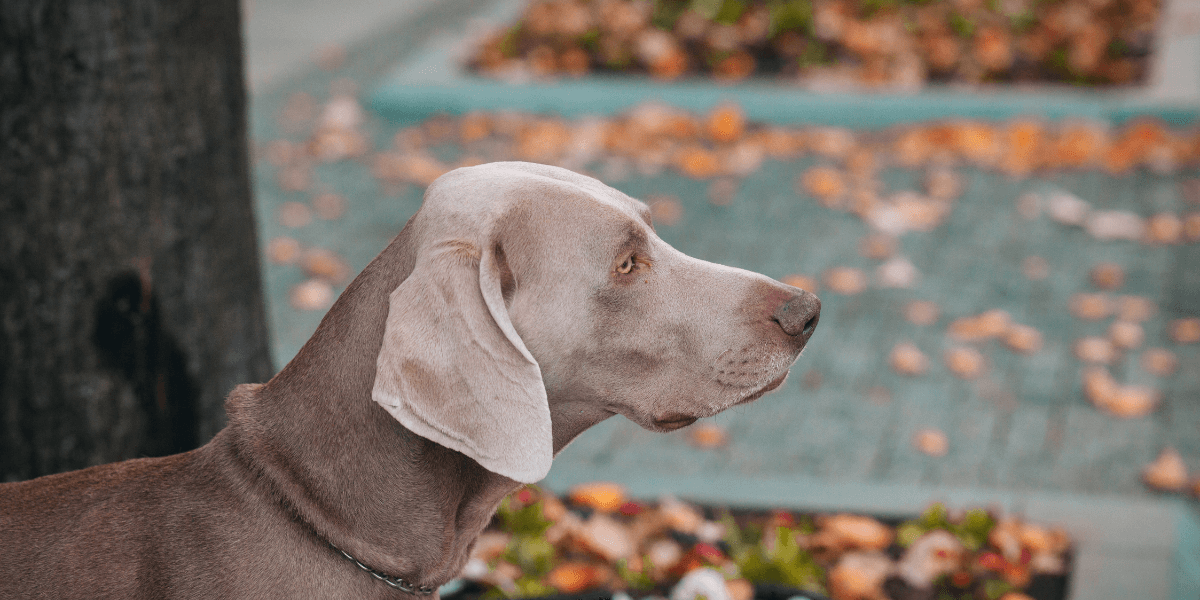
Selecting the right dog food is pivotal for your Weimaraner’s health.
- Dry Food: Often contains higher protein levels and is convenient
- Wet Food: Can be more palatable and hydrating, but check for high-quality ingredients
- Grain-Free Options: Good for dogs with grain allergies, but ensure it’s complete
- Life Stage Specific: Choose food based on age for tailored nutrition
- Special Needs: Select food for specific health issues, like joint support or sensitive stomach
- Raw Diet: A more natural option but requires careful planning to ensure balanced nutrition
3. Portion Control and Feeding Schedule

Proper portion control and a consistent feeding schedule help maintain a healthy weight.
- Portion Size: Follow the feeding guidelines on your dog food packaging
- Adjust for Activity Level: Decrease portions based on your dog's activity level
- Monitor Weight: Regularly check your dog's weight and adjust portions as needed
- Consistency: Stick to a consistent feeding schedule to support healthy digestion
- Feeding Schedule: Divide the daily food intake into two or three meals
4. Special Dietary Considerations
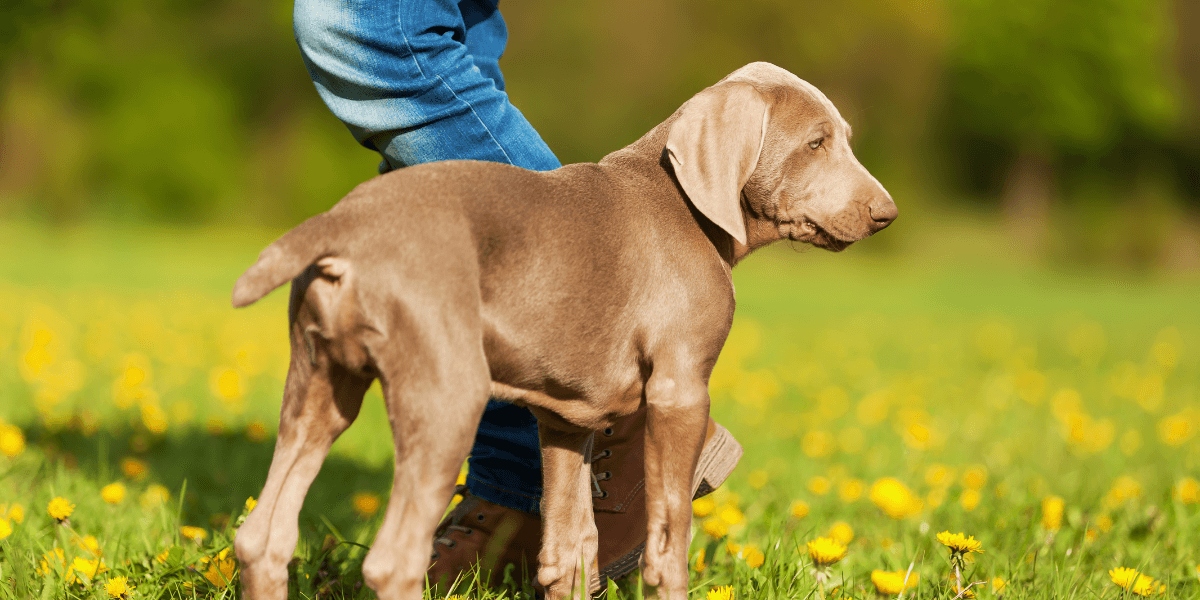
Certain health conditions may require dietary adjustments.
- Hip Dysplasia: Choose foods with glucosamine and chondroitin to support joint health
- Allergies: Opt for hypoallergenic foods if your Weimaraner has food sensitivities
- Weight Management: Select lower-calorie options if weight control is needed
- Digestive Health: Consider foods with probiotics to aid digestion and gut health
- Skin and Coat: Look for foods with omega fatty acids for a healthy, shiny coat
- Joint Health: Opt for foods with added omega-3 fatty acids to joint flexibility
- Dental Health: Choose kibble designed to reduce tartar buildup and promote oral hygiene
Learn about common health issues in Great Danes to better understand your Weimaraner's dietary needs.
5. Homemade and Natural Diet Options
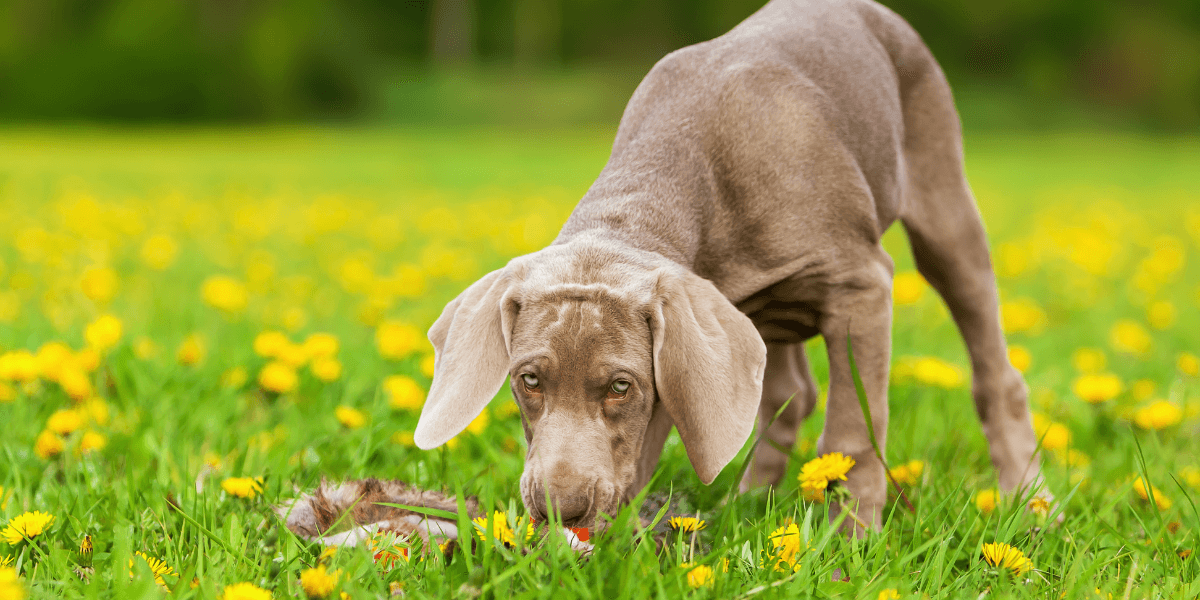
Homemade diets can be a healthy choice if prepared correctly.
- Balanced Recipes: Ensure the diet includes all essential nutrients
- Fresh Ingredients: Use high-quality meats, vegetables, and grains
- Supplements: Consider adding supplements like fish oil or probiotics
- Portion Control: Carefully measure homemade meals to avoid nutritional imbalances
- Avoid Harmful Foods: Be aware of toxic foods like onions, garlic, and grapes
- Consult a Vet: Work with a veterinarian to ensure the diet meets your dog’s needs
6. Foods to Avoid
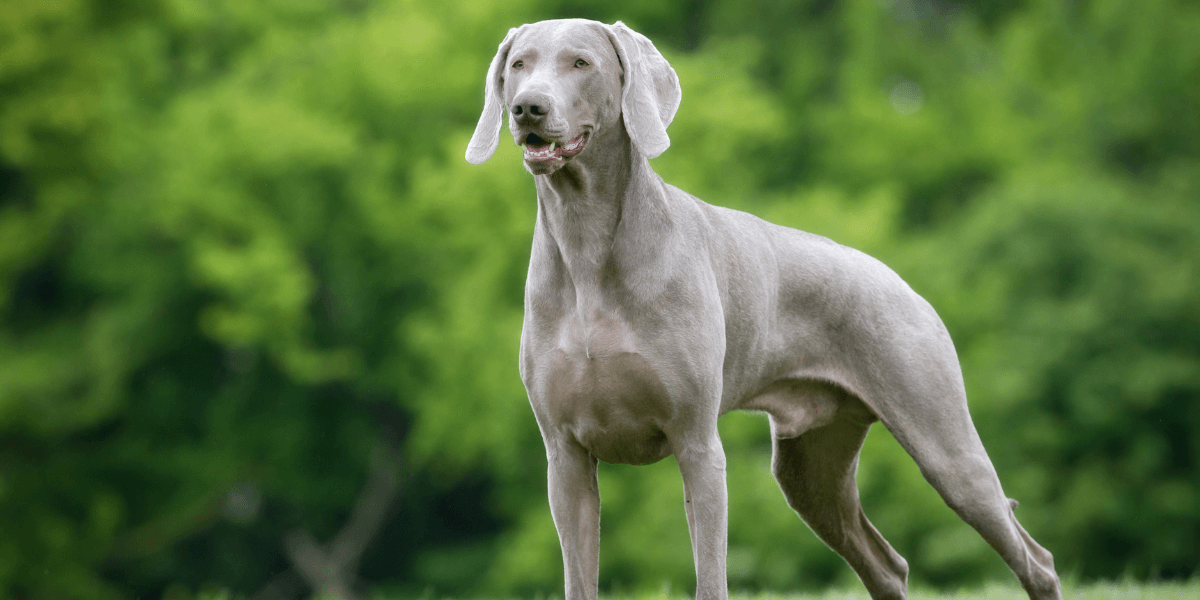
Certain foods are harmful to Weimaraners and should be avoided.
- Chocolate: Contains theobromine, which is toxic to dogs
- Grapes and Raisins: Can cause kidney failure
- Onions and Garlic: May lead to gastrointestinal upset and anemia
- Caffeine: Found in coffee and tea, it can cause restlessness and heart issues.
- Avocado: Contains persin, which can cause vomiting and diarrhea in dogs
- Alcohol: Can lead to intoxication, liver damage, and even death
- Bones and Fat Trimmings: Can cause digestive issues or pancreatitis
Discover foods to avoid for Weimaraners by exploring nutritional insights from Great Dane diets.
7. Regular Check-ups and Adjustments
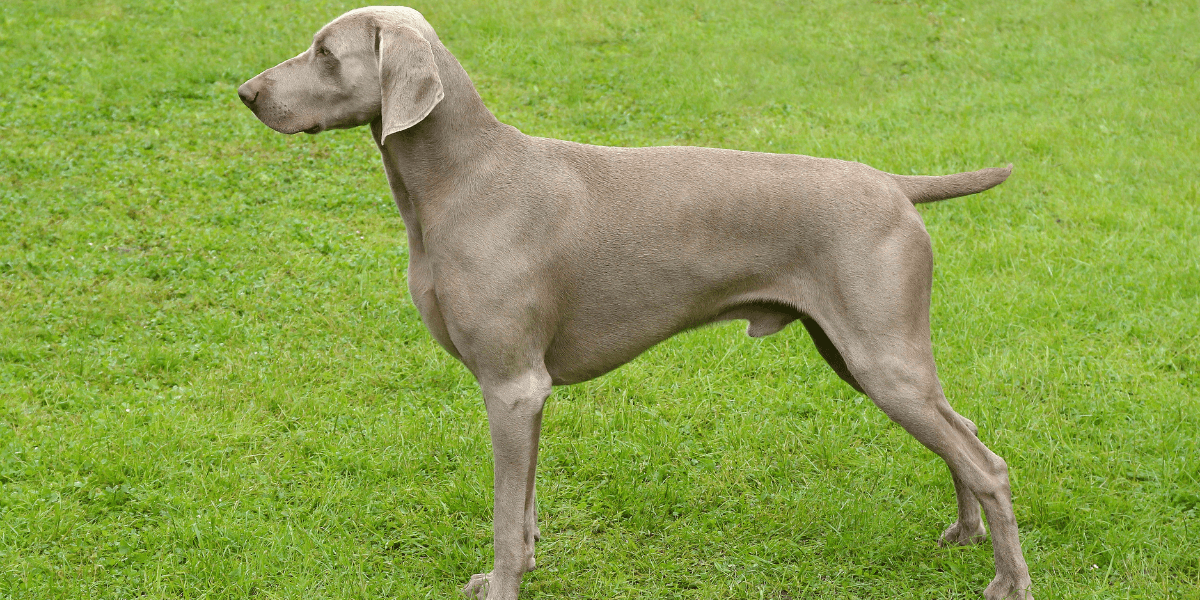
Regular veterinary check-ups are essential to monitor your Weimaraner’s health.
- Routine Exams: Schedule annual vet visits to assess overall health
- Weight Monitoring: Regularly check your dog’s weight and adjust food portions
- Blood Tests: Conduct periodic blood tests to monitor internal health and nutritional status
- Digestive Health: Observe for any signs of digestive upset and adjust diet if needed
- Consultations: Discuss any dietary concerns or changes with your vet
- Allergy Checks: Regularly review for new or evolving food sensitivities
- Dietary Adjustments: Modify the diet based on age, activity level, and health changes
Regular check-ups can prevent issues like hip dysplasia; learn from Great Dane health practices.
FAQs
1. What should Best Diet for Weimaraner include?
- A balanced mix of proteins, fats, and carbohydrates
2. How much should I feed my Weimaraner daily?
- About 2-4 cups of high-quality food, split into two meals
3. What’s the Best Diet for Weimaraner puppies?
- High-protein, age-appropriate food to support growth and development
4. Can Weimaraners eat grains?
- Yes, whole grains can be included if tolerated
5. Are there foods to avoid for Weimaraners?
- Avoid fillers, artificial additives, and high-fat foods
6. How often should I change my Weimaraner’s food?
- Change gradually, about every 6-12 months, or as advised by your vet
7. Should I add supplements to my Weimaraner’s diet?
- Consider supplements if recommended by your vet, such as omega-3s
Conclusion
- Recap of the Best Diet for Weimaraner to ensure balanced nutrition
- Highlight the importance of choosing high-quality, nutritious foods
- Emphasize the role of regular vet check-ups to tailor their diet
- Encourage readers to monitor their Weimaraner's health and adjust as needed
Please share it with fellow dog owners and leave your comments below!
References
For more information on The Best Diet for Weimaraner, check:
- Ideal Diet for Weimaraners – The Ultimate Weimaraner Feeding Guide
- A Complete Breed Guide for Weimaraner Dogs
- Orthopedic Dog Beds for Large Dogs: A Comprehensive Guide
- Orthopedic Dog Beds: Help for Senior Dog Arthritis?
- The Best Diet for Weimaraner Dog
- Top Orthopedic Beds for Large Dogs with Hip Dysplasia
Thank you!




